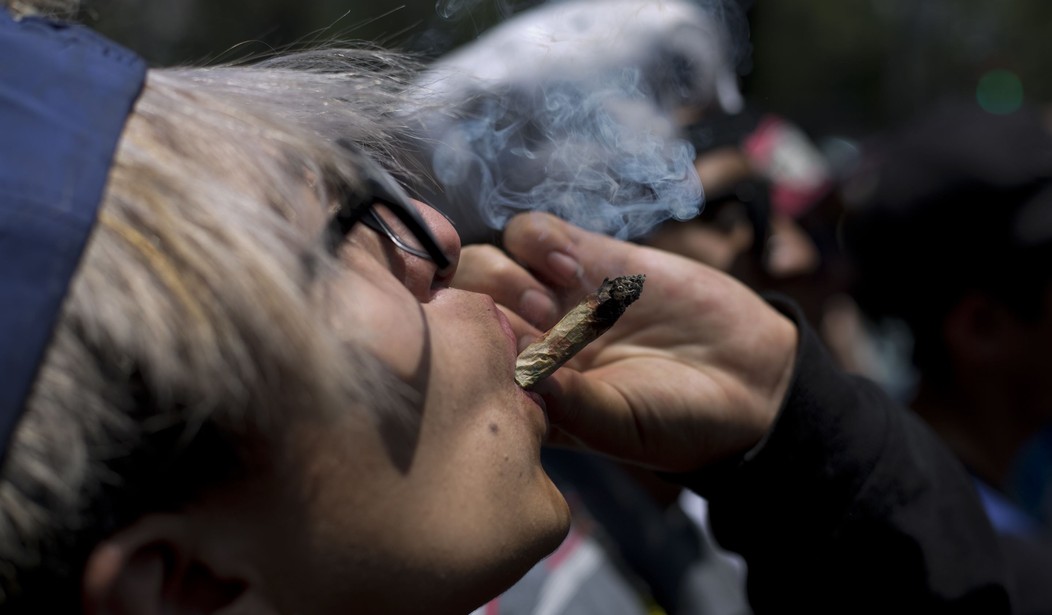President Joe Biden announced on Friday that he is issuing pardons for thousands of people who were convicted for the use or simple possession of marijuana on federal lands and in Washington, D.C. The move is an expansion of 2022’s pardons, which affected people convicted under one criminal statute.
The White House has also pardoned people who were serving excessive sentences for using or possessing marijuana.
WASHINGTON (AP) — President Joe Biden pardoned thousands of people who were convicted of use and simple possession of marijuana on federal lands and in the District of Columbia, the White House said Friday[...]
The categorical pardon builds on a similar round issued just before the 2022 midterm elections that pardoned thousands convicted of simple possession on federal lands eligible. Friday’s action broadens the criminal offenses covered by the pardon. Biden is also granting clemency to 11 people serving what the White House called “disproportionately long” sentences for nonviolent drug offenses.
In a statement the White House released Friday, Biden said "his actions would help make the 'promise of equal justice a reality.'”
Criminal records for marijuana use and possession have imposed needless barriers to employment, housing, and educational opportunities. Too many lives have been upended because of our failed approach to marijuana. It’s time that we right these wrongs.
The AP report continued:
No one was freed from prison under last year’s action, but the pardons were meant to help thousands overcome obstacles to renting a home or finding a job. Similarly, no federal prisoners are eligible for release as a result of Friday’s pardon.
But the order expands the grounds on which pardons are issued. In the last round, people were pardoned for simple possession under only one criminal statute. Friday’s pardons also apply to several other criminal statutes, including attempted simple possession.
The pardon does not apply to those convicted while they were in the country illegally.
This action is intended, in part, to address long-standing sentencing disparities that have disproportionately impacted black Americans and aligns with a broader shift toward the legalization of marijuana. It also reflects changing attitudes towards marijuana and overall drug policies at the state, federal, and local levels of government.
In 2022, the president issued several commutations and pardons to others convicted for possessing or consuming the plant.
Friday's action comes in addition to the 75 commutations and three pardons issued in April 2022; six pardons issued in December 2022; and 31 commutations in April 2023, as well as the categorical pardon issued for thousands of people convicted of federal and D.C. simple possession of marijuana in October 2022.
This move, as with the one in 2022, does not free anyone from prison as it applies to those who were convicted solely of simple possession or use of marijuana. Those who were previously incarcerated for this offense had already served their time. However, the pardons will benefit those having trouble obtaining employment, education, and housing due to having the conviction on their records.
The pardons could be viewed not only as a step toward righting historical wrongs in America’s justice system but also as a step toward legalizing marijuana at the federal level. The development occurs as several states are rethinking their marijuana policies. Others have already legalized it for medical or recreational use.
The findings of a Gallup poll published in November show overwhelming support for legalization.
Seven in 10 Americans think marijuana use should be legal, the highest level yet after holding steady at 68% for three years.
The latest results are based on a Gallup poll conducted Oct. 2-23. Aside from those in favor, 29% of U.S. adults think marijuana should not be legal, while 1% are unsure.
Twelve percent of Americans backed legalizing marijuana when Gallup first asked about it in 1969. Support cracked the 50% threshold in 2013, jumping 10 percentage points to 58% after Colorado and Washington became the first states to legalize the recreational use of marijuana.
Interestingly enough, a majority of Republicans, who have historically supported prohibiting the plant, now support legalization.
There are still plenty of holdouts when it comes to legalizing marijuana. But the fact that the public’s attitudes toward the plant have changed so drastically over the years shows that those pushing for legalization have more than a fighting chance.












Join the conversation as a VIP Member